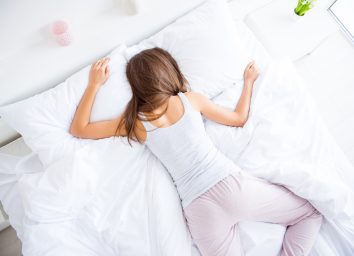Over 50? Try These Secret Tricks for Sleeping Better, Says Science
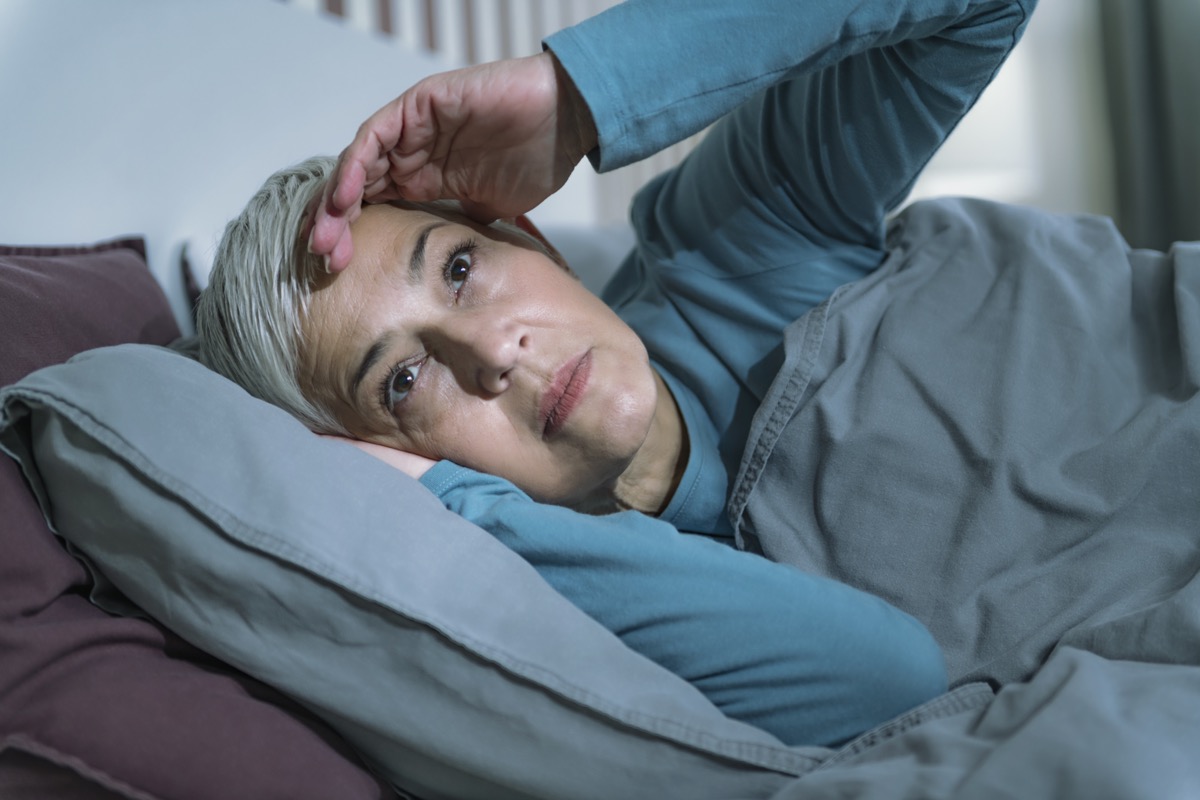
Sleep can be elusive at any age, but chronic sleep issues—and full-blown insomnia—are particularly common among older adults starting right around the age of 50.
“Tell me if this sounds familiar,” says clinical psychologist Michael J. Breus, Ph.D., founder of The Sleep Doctor. “You slept like a log in your 20s, and pretty well in your 30s, maybe even into your early 40s. Then, somewhere in your later 40s or 50s, sleep started to get…wonky. You go to bed exhausted but still have trouble falling asleep. You wake at least once or twice a night—sometimes to go to the bathroom, sometimes just because. Often, you don’t sleep all the way to dawn, waking way ahead of your alarm, wishing you could grab that extra 45 minutes or hour of rest. Welcome to sleep in middle age.”
What is it about the big 5-0 that leads to so many sleepless nights? The Sleep Foundation tells us that much of this phenomenon is related to natural age-related changes within the body’s internal clock. Our circadian rhythms dictate when we wake, feel tired and fall asleep, and become hungry. As the decades pass by, however, the “master clock” in our minds responsible for those bodily rhythms slowly changes and deteriorates.
Luckily, there are plenty of tricks, changes, and lifestyle adjustments older adults can make to combat age-related sleep problems. Keep reading to learn what you can do to counter poor sleep in middle age. And for more great sleep advice, make sure you know why It’s Worse for You to Sleep on This Side of Your Body, Says Science.
Soak in the Sunshine in the Morning

It may sound counterintuitive to talk about a sleep trick to employ in the AM after you wake up, but hear us out. Remember the master clock in your mind mentioned above? Well, scientists refer to it as the SCN (suprachiasmatic nucleus), and it receives most of its information via the eyes. Consequently, natural light is one of the biggest visual cues the SCN looks for to re-adjust and recalibrate circadian rhythms. In simpler terms, spending more time surrounded by natural light can help older adults get their sleep schedules back on track.
This research published in Holistic Nursing Practice found that spending two hours in the sun each morning for five straight days helped a group of older adults improve their overall sleep quality. And for more amazing sleep tips, consider trying these Secret Tricks for Falling Asleep When You Can’t Fall Asleep, Say Experts.
Perform Moderate Exercise in the Evening
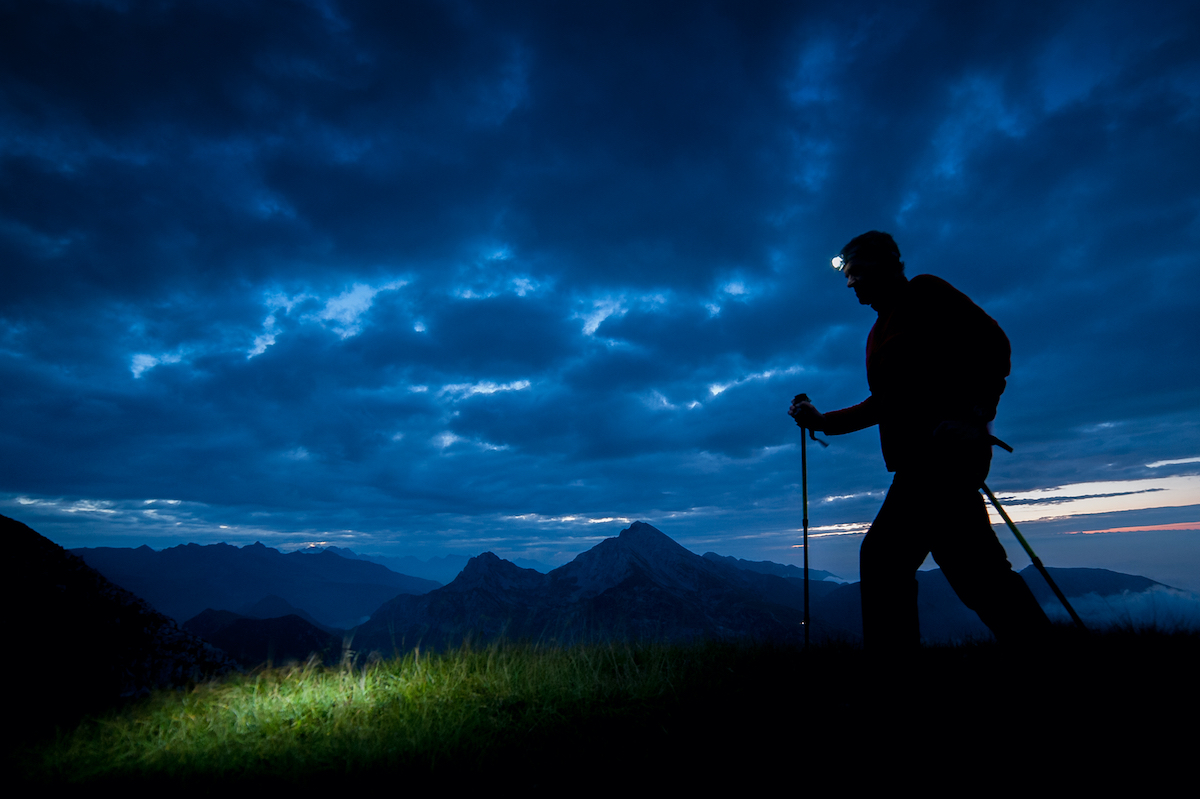
There are plenty of benefits to getting your daily workout done early in the day. Interestingly, though, older adults struggling with quality sleep may want to consider adding some moderate physical activity to their evening routine. A study recently published in the Journal of Geriatric Psychiatry and Neurology separated a group of 60 older adults into two experimental groups: one that engaged in low-intensity aerobic exercise in the morning and another that did the same at night. Adults assigned to the evening exercise group were able to fall asleep faster each night and reported greater satisfaction with their sleep quality. And for more advice for getting more Zs, don’t miss Why Listening to Taylor Swift Before Bed Will Ruin Your Sleep!
Don’t Take Long Naps
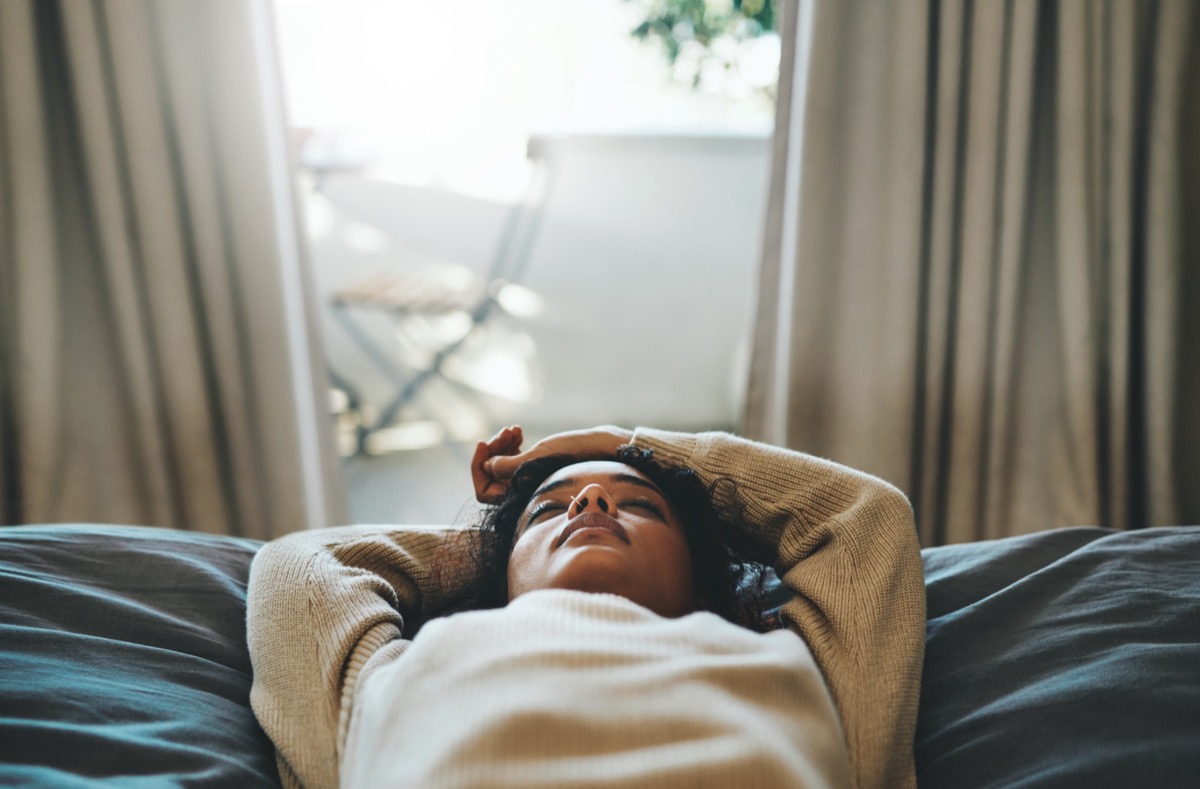
Many people who were never habitual nappers earlier in life find themselves snoozing in the afternoon much more regularly after entering their 50s. One study published in BMC Geriatrics that included over 7,000 adults ages 60 and older found 59.3% were “habitual” daytime nappers. While it makes some sense to recoup lost sleep with new naps here and there, the Mayo Clinic advises avoiding long or frequent naps if you’re struggling with sleep at night. A few minutes of napping in the afternoon may lead to hours spent awake at night.
Don’t Dwell on Your Poor Sleep
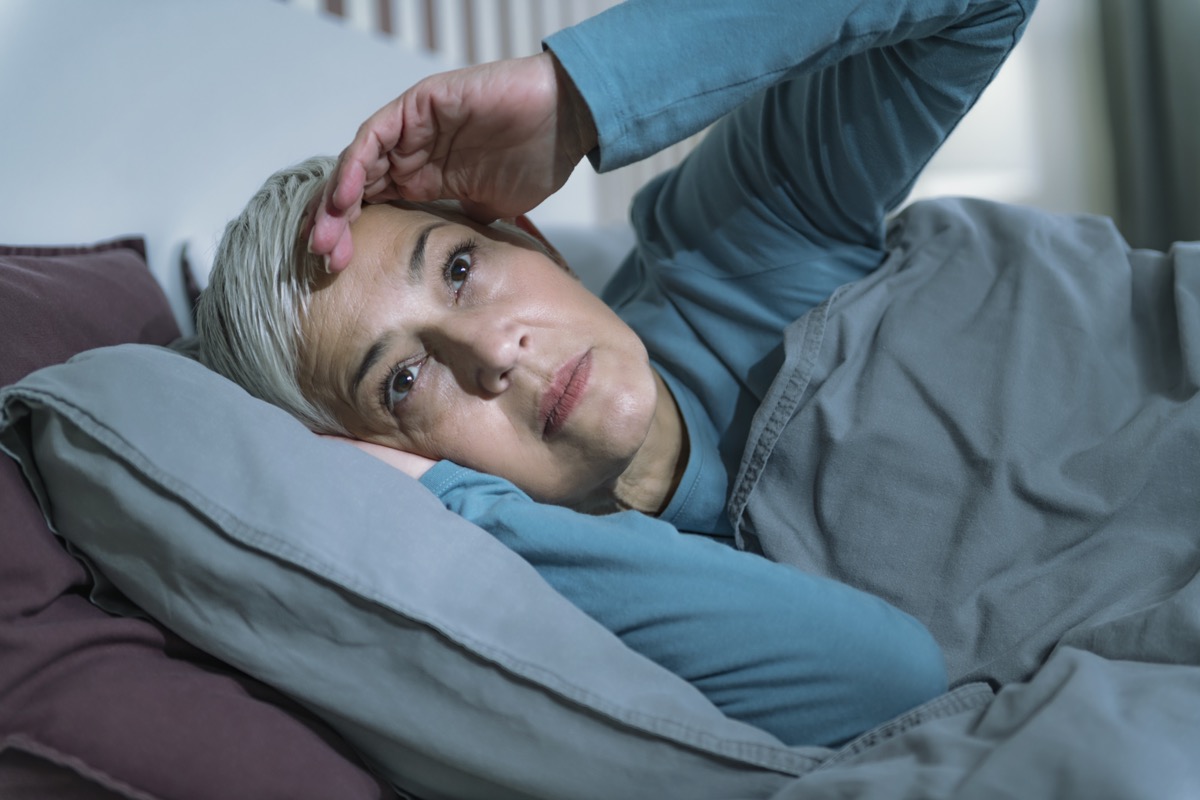
One specific sleep complaint cited by older adults is frequently waking up in the middle of the night. If you’ve been dealing with this problem and can’t help but worry about it all the time, Therapist Laura Mueller-Anderson, MSW, LICSW has a re-assuring piece of advice: Remember that there’s absolutely nothing wrong with you.
“The biggest sleep issue I have seen over the age of 50 is frequent waking during the night,” she says. “This is completely to be expected, because our sleep cycles change over the course of our lifetimes. As people age the amount of time they spend in deep sleep decreases and time spent in light sleep increases, and typically people have more frequent awakening during the night as they cycle through the lighter stages of sleep. It is completely normal and people’s bodies are still gaining the benefits of rest and sleep.”
So now you know frequent nighttime sleep disruptions aren’t necessarily a big problem. So what should you do?
“A major strategy to combat this sleep disruption is just to have the knowledge that not only is it normal, but you are also gaining the benefits of deep rest even when you awaken in the middle of the night,” says Mueller-Anderson. “This is because in that first stage of sleep, we can still have some awareness of surroundings so although you think you have woken up you may actually still be getting the benefits of stage one sleep. It may be helpful to come up with a reassuring phrase to say to oneself on these occasions. An example would be, ‘I’ve awoken and I’m getting rest, I will return to sleep soon.’” And for more on sleep, make sure you know What Your Weird Dreams Really Mean, According to a New Study.
Add Magnesium—and De-Stress

There’s no shortage of prescription and OTC meds and concoctions that claim to provide the perfect night’s sleep. While the validity of many of those claims are dubious to say the least, Aaron Hartman, MD, recommends a few natural supplements for older adults struggling with sleep.
“Cortisol is a stress hormone that increases as we age that can also disrupt our sleep. Supplementing phosphatidylserine (a lipid that lowers cortisol), l-theanine, and ashwagandha can help abate cortisol,” he suggests. “Many medications, stressors, and health conditions common in older age can cause magnesium deficiency. Glycine is an amino acid that turns into GABA, which is the ‘zen’ neurotransmitter that helps calm us down and induces sleep. So a nice combination of magnesium glycinate powder gives your brain the magnesium it needs and preps for sleep.” And for more on sleep, don’t miss The Secret Side Effect of Sleeping in Too Late, Says New Study.

